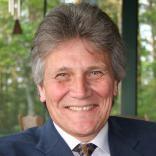
Nine top teaching fellowships awarded to STEP
Nine students in the 2014 class of the Stanford Teacher Education Program have received Lenore Annenberg Teaching Fellowships — often referred to as the “Rhodes Scholarships for Teaching” — administered through the Woodrow Wilson National Fellowship Foundation.
With the new awards, STEP students have received a total of 43 of the fellowships — more than any other school — since the foundation initiated the scholarships in 2009.
“STEP is a national model of excellence in teacher preparation,” said James W. Fraser, a senior advisor to the foundation who is responsible for the Leonore Annenberg Teaching Fellowship program at the foundation. “We use these fellowships to attract great teachers to the profession but also to help universities nationwide to improve their teacher education programs.”
Fraser, who is also a professor of history and education at New York University’s Steinhardt School of Culture, Education and Human Development, said that when he visits education schools he holds STEP up as an example and urges them to emulate its approach. “I am a big fan of STEP,” he said.
The Annenberg Fellowships provide a $30,000 scholarship to students who are pursuing a Master of Arts in Education and a preliminary teaching credential in their subject area.
To receive the award, students must dedicate at least three years of their career to teaching in a high-need urban or rural school. In addition to the scholarship, the foundation provides schools with a grant of $7,200 per fellow to support a mentoring program to enable the university to stay connected to the fellows during the program and in the three years after graduating.
“We are honored to be singled out by the Woodrow Wilson Foundation and are grateful for its support,” said Rachel Lotan, STEP’s director. “These awards are not only welcome acknowledgement of our program’s excellence, but also a tremendous help to our efforts to prepare teachers who can make a major difference in improving our nation’s public schools.”
STEP, a 12-month-long program, is a part of the Stanford Graduate School of Education and enrolls about 90 students each year. It features extensive classroom experience, with courses taught by senior professors, who are the foremost experts in the pedagogy of history, math, science and language arts. Reports show that it attracts the highest caliber of students; that it receives a better ranking from superintendents than any of its peers; and that its graduates remain in the profession much longer than the national average.
This year’s recipients of the Annenberg Fellowships are:
- Faith Blake, 23, BS in biology, Tufts University. She has worked as a biology TA at Tufts and as a math and science teacher at the private tutoring company, Edu4U. She is preparing to be a biology teacher.
- Elizabeth Doggett, 25, BA in biology, University of Colorado-Boulder. She has worked at Los Altos High School in the Advancement Via Individual Determination program, which helps to prepare students for college. She is preparing to be a biology teacher.
- Gustavo Gonzalez, 22, BA in Comparative Studies in Race and Ethnicity, Stanford University. He has worked with the Stanford College Prep program at the East Palo Alto Academy High School. He is preparing to be a history teacher.
- Timothy Kokotovitch, 22, BS in math, University of Minnesota - Twin Cities. He has worked in New Hampshire in a Breakthrough Collaborative program, which encourages middle school students with limited opportunities to pursue a college education. He is preparing to be a math teacher.
- Christopher Lipski, 25, BA in chemistry, Oberlin College. He is currently completing his doctorate in chemistry at Stanford. He is preparing to be a chemistry teacher.
- Morgann Lyles, 23, BA in French and African Studies, University of Georgia. She recently completed a Fulbright Teaching Assistantship in France. She is preparing to be a French teacher.
- Brenda Perez-Navaro, 22, BS in math, Cal State Monterey Bay. She has worked with Mini-Corps program, tutoring migrant children in rural California. She is preparing to be a math teacher.
- Nathan Pinsky, 22, BS in Math, Harvey Mudd College. He has worked with the Community Rights Campaign to organize low-income high school students to advocate for better education.
- Cynthia de la Rosa, 22, BA in English/Literature, University of Chicago. She previously worked with an after school program in Chicago, the Sue Duncan Children's Center. She is preparing to be an English teacher.
“STEP recruits absolutely terrific fellows,” said Fraser. “The students in the program, in addition to those receiving the fellowships, are just outstanding candidates who will make a great contribution to the teaching profession.”
Along with In addition to the quality of its students, Fraser mentioned three other reasons why the Woodrow Wilson Foundation supports STEP.
First, STEP has advanced an approach that combines a yearlong residency in classrooms — starting in June in summer school and continuing through the school year with the same teacher — with courses taught by Stanford faculty who have devoted their careers to the disciplines the fellows will teach. Second, through its relationship with Woodrow Wilson, STEP has developed a unique model of mentoring graduates: An experienced teacher works with STEP students while in the program and continues as their mentor for the three years after their graduation.
And the third is Rachel Lotan. “She is just fabulous,” said Fraser. “She sticks with these students and is an amazing educator.”



